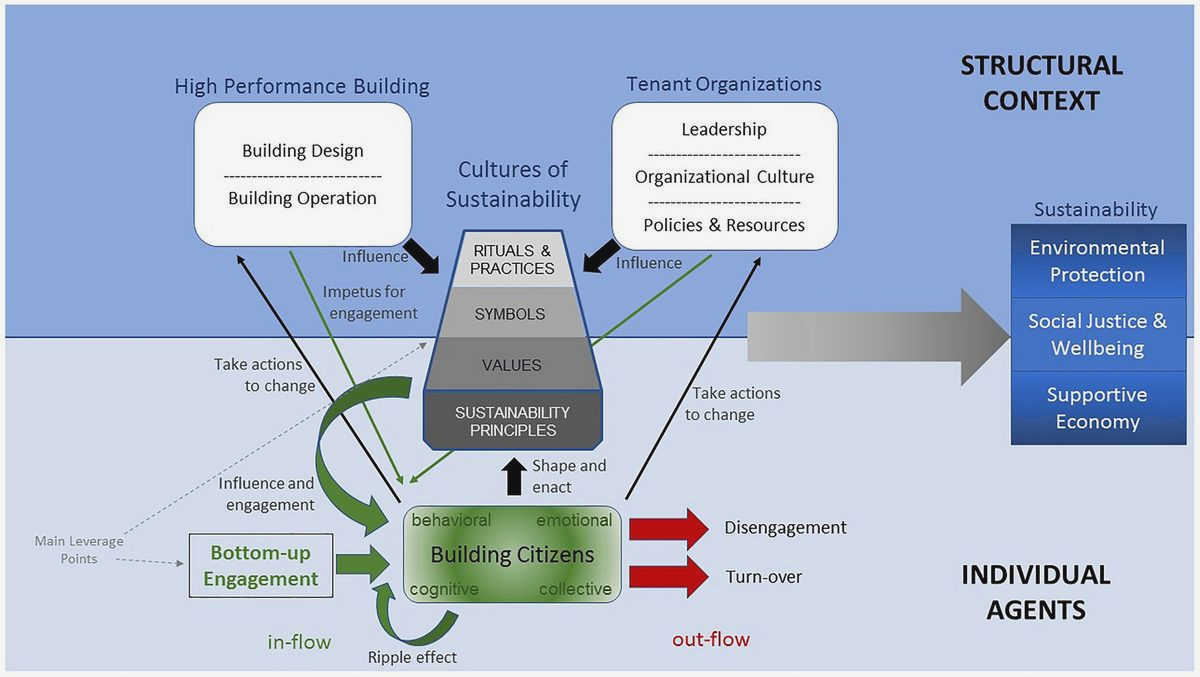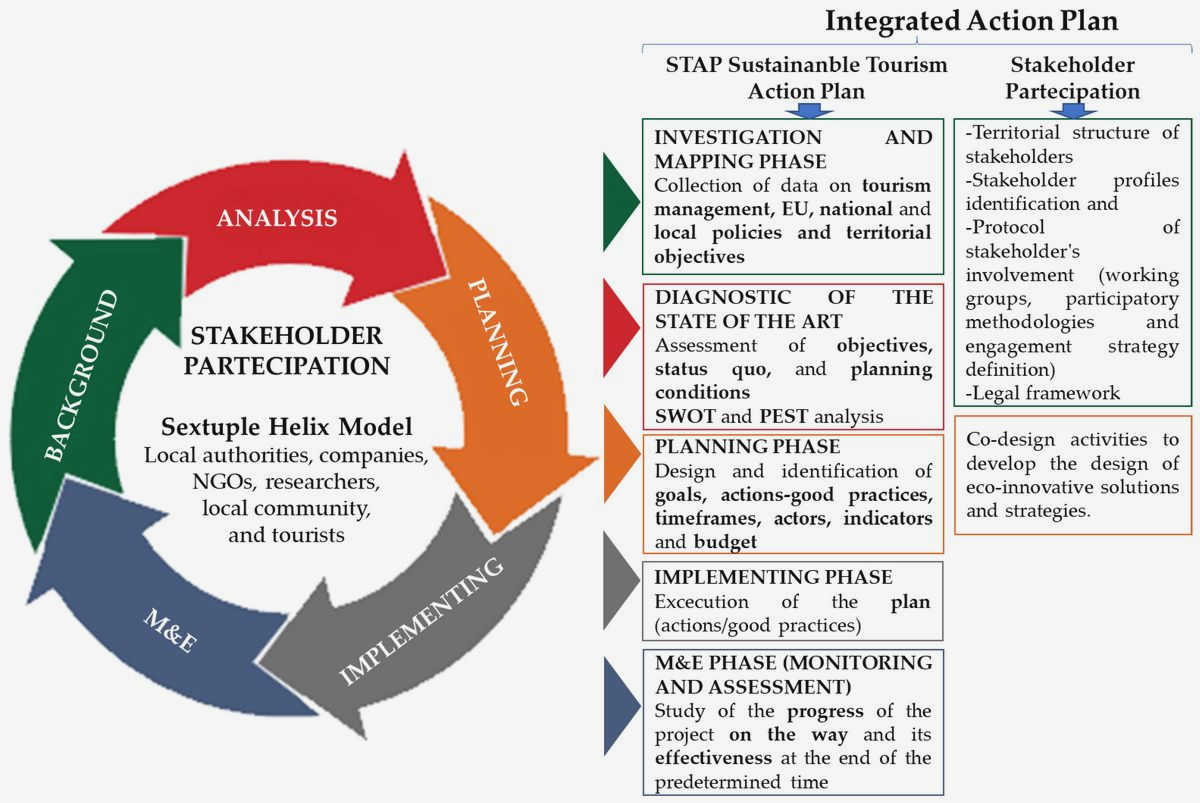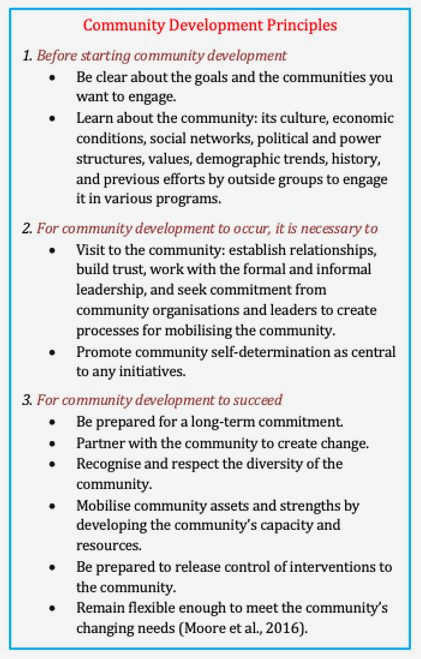Civil society organizations (CSOs) play a crucial role in fostering community development and creating lasting change. These organizations, which include non-governmental organizations (NGOs), community-based organizations (CBOs), and social enterprises, work tirelessly to address the diverse needs of communities and advocate for social justice. By mobilizing resources, engaging local residents, and promoting participatory decision-making processes, CSOs empower communities and contribute to sustainable development.
One key way CSOs foster community development is through their ability to provide targeted resources and support. These organizations often have expertise in various sectors, such as education, healthcare, or environmental conservation, which enables them to identify the specific needs of communities and provide tailored solutions. Whether it’s building schools, providing medical supplies, or promoting sustainable agricultural practices, CSOs are able to leverage their resources and networks to fill gaps in service provision and improve the well-being of community members.
Another crucial role of CSOs in community development is their ability to empower local residents. By involving community members in decision-making processes and providing platforms for their voices to be heard, CSOs help to build strong and resilient communities. Through community-led projects and participatory approaches, CSOs foster a sense of ownership and agency among residents, empowering them to drive their own development and advocate for their rights. This participatory approach not only ensures that community development initiatives are more sustainable and effective but also fosters a sense of community pride and cohesion.
Furthermore, CSOs serve as advocates for social justice and human rights, working to address systemic issues that impede community development. By raising awareness, mobilizing public support, and influencing policy and decision-making processes, CSOs hold governments and other stakeholders accountable and push for positive change. From addressing issues of inequality and discrimination to advocating for equal access to education and healthcare, CSOs play a vital role in fighting for social justice and creating an enabling environment for community development.
In conclusion, civil society organizations are instrumental in fostering community development and creating lasting change. Through their resource mobilization, empowerment of local residents, and advocacy efforts, CSOs contribute to sustainable development and social justice. These organizations serve as catalysts for positive change in communities, working tirelessly to address diverse needs and build resilient and inclusive societies.
The Role of Civil Society Organizations in Community Development
Civil society organizations play a crucial role in fostering community development by addressing various social, economic, and environmental challenges that communities face. These organizations act as intermediaries between government entities and the local population, helping to bridge the gap and ensure that community needs are met.
Advocacy and Representation: Civil society organizations serve as advocates for marginalized groups and communities, voicing their concerns and demanding equal rights and opportunities. They highlight issues that often go unnoticed and pressurize policymakers to take action and implement effective solutions.
Capacity Building: Civil society organizations empower individuals and communities by providing them with the necessary skills, knowledge, and resources to drive their own development. This includes organizing workshops, training programs, and educational initiatives to enhance community members’ capabilities and improve their quality of life.
Community Mobilization: Civil society organizations bring together community members, fostering inclusivity and collaboration. Through community mobilization activities such as town hall meetings, public forums, and grassroots initiatives, these organizations encourage active engagement and involvement in decision-making processes that directly impact the community.
Networking and Collaboration: Civil society organizations play a vital role in creating networks and partnerships among different stakeholders, including government agencies, NGOs, and community-based organizations. By leveraging these networks, they can advocate for collective action, share resources, and implement more effective community development strategies.
Monitoring and Evaluation: Civil society organizations analyze and assess the impact of community development programs and initiatives. By monitoring the progress and evaluating the outcomes, these organizations ensure that the intended goals are being met and make necessary adjustments to improve the effectiveness and sustainability of their interventions.
Sustainable Development: Civil society organizations promote sustainable development practices by advocating for environmental conservation, sustainable resource management, and climate resilience. They raise awareness, develop initiatives, and educate communities on sustainable practices that can contribute to the long-term well-being and resilience of the community.
In conclusion, civil society organizations play a multifaceted role in community development by advocating for the rights of marginalized groups, building the capacity of individuals and communities, mobilizing community members, fostering networks and partnerships, monitoring and evaluating development programs, and promoting sustainable practices. Their efforts are instrumental in creating lasting change and improving the overall well-being of communities around the world.
Building Strong Communities through Collaboration
In order to build strong communities, collaboration is key. Civil society organizations play a crucial role in fostering community development by bringing together individuals, groups, and institutions to work towards a common goal. Collaboration allows for the pooling of resources, expertise, and ideas, leading to more effective and sustainable solutions.
Collaboration between civil society organizations and community members is essential for establishing a sense of ownership and empowerment. By involving the community in decision-making processes, their voices are heard and their needs are addressed. This creates a sense of belonging and encourages active participation in community initiatives.

Benefits of Collaboration
There are several benefits of collaboration in building strong communities. First, collaboration allows for the sharing of knowledge and expertise. Different organizations and community members bring unique perspectives and skills to the table, resulting in more innovative and comprehensive approaches to community development.

Second, collaboration fosters mutual support and solidarity among community members. By working together towards a common goal, individuals and organizations can leverage their combined resources and strengths, creating a network of support that benefits the entire community.
Lastly, collaboration encourages accountability and transparency. When multiple stakeholders are involved in the decision-making process, there is a greater level of oversight and scrutiny. This helps to ensure that actions taken are in the best interest of the community and that resources are used effectively.
Methods of Collaboration
There are various methods of collaboration that civil society organizations can employ to build strong communities. One approach is through partnerships with local businesses, government agencies, and educational institutions. These partnerships allow for the sharing of resources and expertise, as well as the creation of joint initiatives and programs.
Another method is through the establishment of community networks and coalitions. These networks bring together a wide range of stakeholders, including community members, non-profit organizations, government agencies, and businesses, to work collectively towards common goals. By fostering collaboration and coordination, these networks help to ensure that community development efforts are comprehensive and sustainable.
In conclusion, collaboration is essential for building strong communities. By working together, civil society organizations, community members, and other stakeholders can pool their resources, knowledge, and expertise to address the needs of the community and foster sustainable development.
Empowering Individuals for Sustainable Change
Empowering individuals is a crucial step towards achieving sustainable change in communities. When individuals are empowered, they are given the tools, resources, and knowledge to take control of their own lives and actively participate in the development of their communities. This empowerment can be achieved through various means, such as providing access to education, training programs, and mentorship opportunities.
One way to empower individuals is through education. By increasing access to quality education, individuals are equipped with the necessary skills and knowledge to make informed decisions about their lives and contribute to the development of their communities. Moreover, education can help individuals break free from the cycle of poverty and inequality, providing them with better opportunities for employment and economic growth.
In addition to education, training programs can also play a significant role in empowering individuals. These programs provide individuals with practical skills and expertise in various areas, such as agriculture, entrepreneurship, and healthcare. By acquiring these skills, individuals are able to create sustainable livelihoods for themselves and their families, reducing their dependence on external aid and contributing to the overall development of their communities.
Mentorship programs are another effective way to empower individuals. By connecting individuals with experienced mentors who can offer guidance and support, individuals are given the opportunity to learn from the experiences of others and gain valuable insights into their chosen field. This mentorship can help individuals build confidence, expand their professional networks, and unlock their full potential, ultimately leading to sustainable change in their communities.
Overall, empowering individuals is a fundamental step in fostering sustainable change in communities. Through education, training programs, and mentorship opportunities, individuals can develop the skills, knowledge, and confidence needed to actively participate in the development of their communities, leading to long-lasting and impactful change.
Addressing Social Issues and Inequalities
Social issues and inequalities are pervasive in many communities and can have a significant impact on the well-being of individuals and the overall development of a society. Civil society organizations play a crucial role in addressing these issues and working towards creating a more equitable and inclusive society.
Identifying and Analysing Social Issues
Civil society organizations are often at the forefront of identifying and analyzing social issues. They conduct research, collect data, and engage with different stakeholders to gain a comprehensive understanding of the root causes and consequences of these issues. This information helps in formulating targeted strategies and interventions to address the specific social challenges that communities face.
Advocacy and Policy Change
Civil society organizations have a vital role in advocating for policy change to address social issues and reduce inequalities. They work towards influencing public opinion, engaging with policymakers, and advocating for the rights and interests of marginalized groups. Through lobbying, campaigning, and raising awareness, these organizations can bring about systemic changes that benefit the entire community.
Building Partnerships and Collaborations
No single organization can effectively address social issues and inequalities alone. Civil society organizations understand the importance of building partnerships and collaborations with other stakeholders, including government agencies, businesses, and grassroots organizations. By working together, these organizations can leverage their resources, expertise, and networks to create more impactful and sustainable solutions.
Promoting Social Inclusion and Empowerment
Civil society organizations play a crucial role in promoting social inclusion and empowerment among marginalized communities. They create spaces for dialogue, provide education and skills training, and advocate for the rights and voice of marginalized groups. Through these initiatives, they help individuals and communities build resilience, gain access to resources, and actively participate in decision-making processes.

In conclusion, civil society organizations are vital in addressing social issues and inequalities. Through identifying and analyzing social issues, advocacy and policy change, building partnerships, and promoting social inclusion and empowerment, these organizations contribute to creating lasting change and fostering community development.
Advocacy and Policy Change for Community Development
Engaging with policymakers
Advocacy plays a critical role in promoting community development. By engaging with policymakers at the local, national, and international levels, civil society organizations (CSOs) seek to influence policies that have a direct impact on the well-being of communities. CSOs use various strategies to advocate for policy change, such as public awareness campaigns, lobbying, and coalition building. They aim to bring attention to key issues, educate policymakers about the needs of communities, and push for changes that will support sustainable community development.
Evidence-based research and data
An important aspect of advocacy for community development is the use of evidence-based research and data. CSOs collect and analyze data on various social, economic, and environmental factors that impact communities. This research helps to identify the root causes of problems and develop effective solutions. By presenting this data to policymakers, CSOs can make a compelling case for policy change and demonstrate the need for targeted interventions. Evidence-based research gives credibility to advocacy efforts and increases the likelihood of policy changes that benefit communities.
Building coalitions and partnerships
CSOs understand that they can achieve greater impact by building coalitions and partnerships. By joining forces with other organizations, they can amplify their voices and increase their influence on policy change. CSOs often collaborate with government agencies, other non-profit organizations, academic institutions, and local community groups to advocate for community development. These partnerships allow for the sharing of resources, expertise, and best practices, leading to more comprehensive and sustainable policy solutions. In addition, coalitions and partnerships can help bridge the gap between policymakers and communities, ensuring that policies are responsive to the needs and realities of the people they seek to serve.
Monitoring implementation and measuring impact
Advocacy does not end with policy change; CSOs also play a crucial role in monitoring the implementation of new policies and measuring their impact on communities. They track whether the intended changes are being effectively implemented and assess the outcomes and benefits for community development. Through data collection, surveys, and evaluations, CSOs can provide feedback to policymakers and advocate for adjustments or improvements in policy implementation. By ensuring accountability and transparency, CSOs help to safeguard the interests of communities and ensure that policy changes are truly making a positive difference in people’s lives.
Continuing the cycle of advocacy and policy change
Advocacy and policy change for community development is an ongoing process. CSOs recognize the importance of continuous advocacy efforts to address emerging challenges and sustain positive change. By staying engaged with policymakers, conducting research, building partnerships, and monitoring implementation, CSOs can continue to foster lasting community development. They play a vital role in ensuring that policies are responsive, equitable, and inclusive, and that communities have the support they need to thrive and grow.
Educating and Raising Awareness of Community Issues
Civil Society Organizations (CSOs) play a crucial role in educating and raising awareness of community issues. They act as catalysts for change by providing information, resources, and solutions to address the challenges faced by communities. Through various outreach programs and initiatives, CSOs aim to empower community members with knowledge and understanding, enabling them to make informed decisions and take proactive measures.
CSOs organize workshops, seminars, and training sessions on a wide range of topics related to community development. These educational events cover issues such as health and sanitation, environmental conservation, gender equality, poverty alleviation, and human rights. By inviting experts and professionals to share their expertise and experiences, CSOs facilitate learning and provide a platform for community members to engage in meaningful discussions.
CSOs also utilize advocacy and awareness campaigns to educate communities about their rights and responsibilities. By conducting surveys, research, and data analysis, CSOs gather evidence-based information to support their advocacy efforts. They collaborate with media outlets to reach a wider audience and utilize social media platforms to disseminate information and raise public awareness about pressing community issues.
In addition, CSOs utilize creative and interactive methods to engage community members in the learning process. They develop educational materials such as pamphlets, brochures, and infographics that are visually appealing and easy to understand. CSOs often incorporate storytelling, drama, and interactive games to make the learning experience more enjoyable and memorable.
CSOs also foster partnerships and collaboration with educational institutions, government agencies, and other stakeholders to ensure the sustainability of their educational initiatives. By working together, they can pool resources, expertise, and networks to maximize their impact and reach a larger audience. CSOs also actively involve community leaders, influencers, and volunteers to strengthen their educational programs and ensure local ownership and participation.
In conclusion, Civil Society Organizations play a crucial role in educating and raising awareness of community issues. Through various educational initiatives, advocacy campaigns, and creative methods, they empower community members with knowledge and understanding, enabling them to actively participate in community development and create lasting change.
Strengthening Community Engagement and Participation
Community engagement and participation are crucial for the success of community development initiatives. Civil society organizations play a vital role in strengthening and facilitating this engagement, as they provide a platform for community members to come together, voice their opinions, and actively participate in decision-making processes.
Building Trust and Relationships
The first step in strengthening community engagement and participation is to build trust and relationships with community members. Civil society organizations can do this by actively listening to the needs and concerns of the community, being transparent in their actions and decision-making processes, and establishing open lines of communication.
Creating Opportunities for Participation
To foster community engagement, civil society organizations can create various opportunities for participation. This can include organizing community meetings, workshops, and forums where community members can share their ideas, provide feedback, and take part in discussions that shape community development initiatives. It is important for these opportunities to be inclusive, accessible, and respectful of diverse perspectives.
Empowering the Community
Empowering the community is key to ensuring meaningful engagement and participation. Civil society organizations can do this by providing the necessary resources, tools, and skills training to community members, allowing them to actively contribute to decision-making processes and take ownership of community projects. This empowerment helps to build a sense of ownership, pride, and responsibility within the community.
Facilitating Collaborative Partnerships
Civil society organizations can also strengthen community engagement and participation by facilitating collaborative partnerships between various stakeholders, such as government agencies, local businesses, and other community organizations. These partnerships provide an opportunity for collective decision-making, resource sharing, and increased impact in community development initiatives.
In conclusion, strengthening community engagement and participation is crucial for the success of community development initiatives. Civil society organizations play a crucial role in building trust, creating opportunities for participation, empowering the community, and facilitating collaborative partnerships, all of which contribute to the overall development and well-being of the community.
Creating Opportunities for Economic Growth
One of the key goals of civil society organizations is to create opportunities for economic growth within communities. These organizations work towards promoting entrepreneurship, supporting small businesses, and fostering innovation to stimulate economic development.
Promoting Entrepreneurship
Civil society organizations play a crucial role in promoting entrepreneurship by providing training, mentorship, and resources to aspiring entrepreneurs. They offer workshops and seminars on business planning, marketing strategies, and financial management. By equipping individuals with the necessary skills and knowledge, these organizations empower them to start their own businesses and contribute to the local economy.
Supporting Small Businesses
Civil society organizations also provide support to small businesses by offering access to funding, networking opportunities, and business development services. They facilitate connections between entrepreneurs and investors, helping small businesses secure financing for expansion or new initiatives. Additionally, these organizations organize trade fairs and business expos, creating platforms for small businesses to showcase their products and services and reach a wider customer base.
Fostering Innovation
In order to drive economic growth, civil society organizations encourage innovation within communities. They create platforms for collaboration and knowledge exchange, bringing together entrepreneurs, researchers, and industry experts. By fostering a culture of innovation, these organizations inspire individuals and businesses to develop new ideas, technologies, and solutions that can drive economic progress and address societal challenges.
In conclusion, civil society organizations play a vital role in creating opportunities for economic growth. Through their promotion of entrepreneurship, support for small businesses, and facilitation of innovation, these organizations contribute to the development and prosperity of communities.

Enhancing Social Cohesion and Inclusion
One of the key goals of civil society organizations is to enhance social cohesion and inclusion within communities. By fostering a sense of belonging and promoting equal participation, these organizations can help bridge divides and bring people closer together.
One way in which civil society organizations contribute to enhancing social cohesion is by organizing community events and activities. These events provide opportunities for individuals from different backgrounds to come together, interact, and learn from one another. By creating a space for dialogue and exchange, these organizations encourage understanding, empathy, and respect, which are essential for building strong and cohesive communities.
Another important aspect of enhancing social cohesion and inclusion is addressing inequalities and promoting social justice. Civil society organizations often work to identify and address the root causes of social exclusion, such as discrimination, poverty, and lack of access to resources. Through advocacy, education, and empowerment initiatives, these organizations strive to create a more inclusive society where everyone has equal opportunities and rights.
Furthermore, civil society organizations play a crucial role in building networks and fostering collaboration among various stakeholders, including government agencies, businesses, and individuals. By creating partnerships and coalitions, these organizations can leverage collective resources and expertise to achieve common goals. This collaborative approach not only strengthens the impact of their work but also promotes a sense of shared responsibility and collective ownership, which enhances social cohesion within communities.
In summary, civil society organizations have a vital role in enhancing social cohesion and inclusion. Through community events, addressing inequalities, fostering collaboration, and promoting social justice, these organizations contribute to building strong and inclusive communities where everyone feels valued and has an equal voice.
Measuring Success and Impact of Community Development Initiatives
Measuring the success and impact of community development initiatives is crucial for organizations to assess their effectiveness and make informed decisions for future programming. By analyzing and evaluating the outcomes and achievements of these initiatives, organizations can determine if they are meeting their intended goals and addressing community needs.
1. Identifying Key Performance Indicators (KPIs)
One way to measure success is by identifying and tracking key performance indicators (KPIs) that align with the objectives of the community development initiatives. These KPIs can include metrics such as increased access to education, improved healthcare services, reduction in poverty rates, or increased community engagement. By regularly monitoring these indicators, organizations can assess their progress and make necessary adjustments.
2. Conducting Surveys and Interviews
Surveys and interviews are valuable tools for measuring the impact of community development initiatives. By gathering feedback directly from community members and stakeholders, organizations can gain insights into the perceived changes and improvements resulting from their initiatives. This qualitative data can help validate or challenge quantitative data, providing a comprehensive understanding of the initiative’s impact.
3. Data Analysis and Reporting
Analyzing and reporting data is essential for measuring the success of community development initiatives. Organizations can use statistical analysis techniques to assess the impact of their initiatives and compare it to baseline data. By presenting this data in clear and concise reports, organizations can communicate their achievements, challenges, and areas for improvement to stakeholders, funders, and the community at large.
4. Collaborating with Partners and Experts
Collaborating with partners and experts in the field can enhance the measurement of success and impact. By engaging external evaluators or researchers, organizations can leverage their expertise to design rigorous evaluation frameworks and methodologies. This collaboration ensures that the measurement process is comprehensive, unbiased, and produces reliable results that can be used to inform future actions.
5. Learning and Adaptation
Measuring success and impact should not only focus on outcomes but also involve a learning and adaptation process. It is essential for organizations to reflect on their findings, identify lessons learned, and make necessary adjustments to improve their initiatives. By continuously adapting and refining their approaches based on evidence, organizations can enhance their effectiveness and drive genuine community development.





